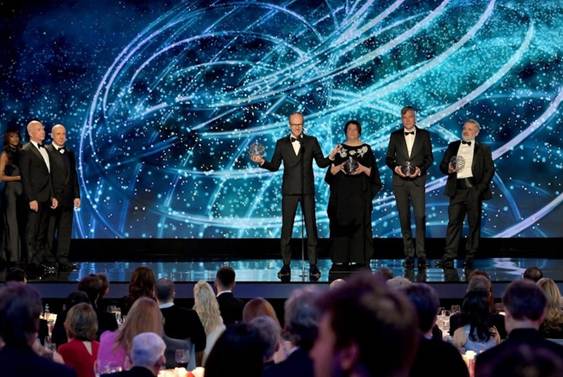Scientists from the Bose Institute’s Experimental High Energy Physics (HEP) group have been awarded the prestigious 2025 Breakthrough Prize in Fundamental Physics. The recognition comes as part of their contribution to the ALICE collaboration at CERN’s Large Hadron Collider (LHC), the world’s largest and most powerful particle accelerator.
The $3 million prize has been jointly awarded to over 13,500 researchers across four LHC experiments—ATLAS, CMS, ALICE and LHCb—for their collective work on data collected during LHC Run 2 (2015–2024). The ALICE collaboration, in which the Bose Institute has played a leading role from India, was allocated $500,000 of the total prize money. The funds will be used to support a Breakthrough Prize studentship programme, which will allow selected PhD students to pursue research at CERN for up to two years.
Bose Institute, Kolkata, an autonomous research institute under the Ministry of Science and Technology, Government of India, is the only such institution from the country involved in the ALICE experiment. The current HEP group at the institute comprises Prof. Supriya Das, Dr. Sidharth Kumar Prasad, Dr. Saikat Biswas, Dr. Sanchari Thakur, and senior research fellow Mintu Haldar. The group’s contributions span detector hardware development, simulation, data-taking, operations, and physics analysis.
The ALICE experiment is dedicated to studying quark-gluon plasma (QGP), a state of matter that existed shortly after the Big Bang. Bose Institute joined the ALICE collaboration under the leadership of former director Prof. Sibaji Raha, who served as the Principal Investigator.
In a statement, Prof. Kaustuv Sanyal, Director of Bose Institute, congratulated the team, calling it a proud moment for the entire Indian high-energy physics community. “This is a great achievement not only for the Bose Institute team but also for the entire community of Indian high energy physicists working in mega-science projects such as ALICE at CERN. Such awards will encourage young minds to join this kind of complex and large experimental programs for exploration of new physics,” he said.
Among the notable contributions from the Bose Institute is the development and deployment of an indigenously built Photon Multiplicity Detector (PMD) based on a proportional counter. This detector played a key role in measuring inclusive photons at forward rapidity and was active in ALICE’s data-taking efforts from 2008 to 2018. Faculty members and students from the institute also led data clean-up, calibration, and quality assurance processes for the PMD dataset.
In addition, the institute participated in the upgrade of ALICE’s Time Projection Chamber (TPC), which now operates using Micro-Pattern Gas Detector (MPGD) technology to handle high-luminosity environments. The upgraded read-out chambers, consisting of Gas Electron Multiplier (GEM) foils, offer low ion backflow, improved energy resolution, and long-term stability.
Faculty members and trainees from Bose Institute have also led six ALICE publications and contributed significantly to several others, marking their influence across various areas of the experiment’s physics programme.
Congratulating the entire ALICE team, spokesperson Prof. Marco Van Leeuwen said, “I would like to congratulate the entire collaboration and the LHC community for this well-deserved recognition of the scientific advancements achieved through our collective efforts.”










